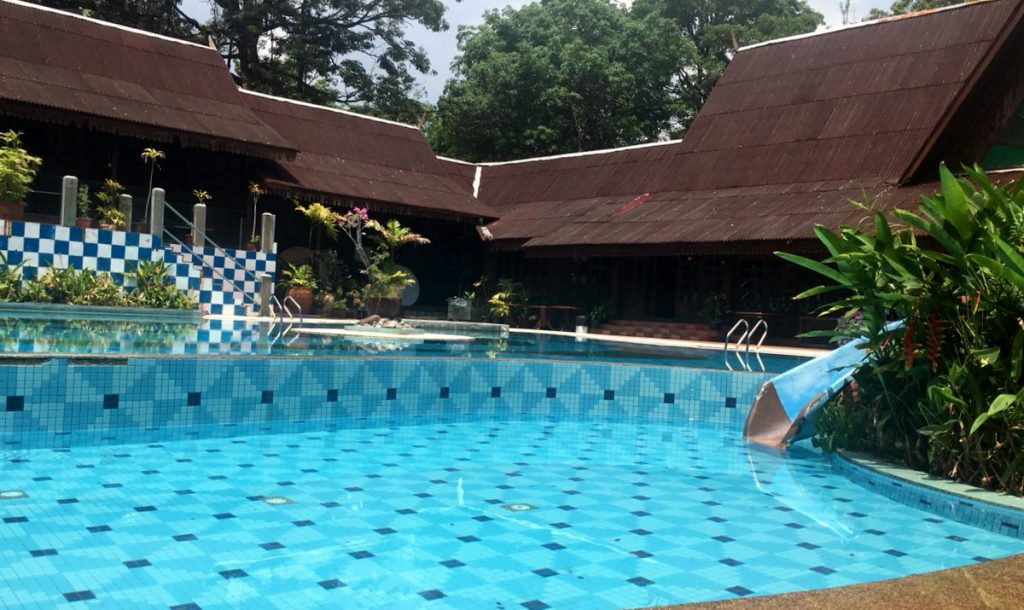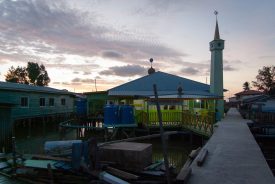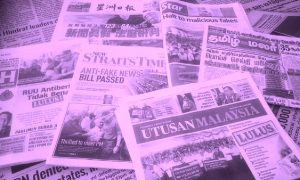Kampung Tok Senik is a leafy wooden-hut resort in the middle of Langkawi island, off the north-west coast of Peninsular Malaysia. Built during Langkawi’s tourism boom in the 1990s, its website proudly claims it’s “where genuine Malay heritage flourishes”. Today, paint strips off the walls, tiles are broken, the waterslide looks like it would distribute splinters rather than exhilarating rides. Various websites now list the resort as “haunted”. So when the 92-year-old former prime minister arrived for a campaign strategy meeting, foreign tourists would be forgiven for thinking they had seen the resort’s resident ghost.
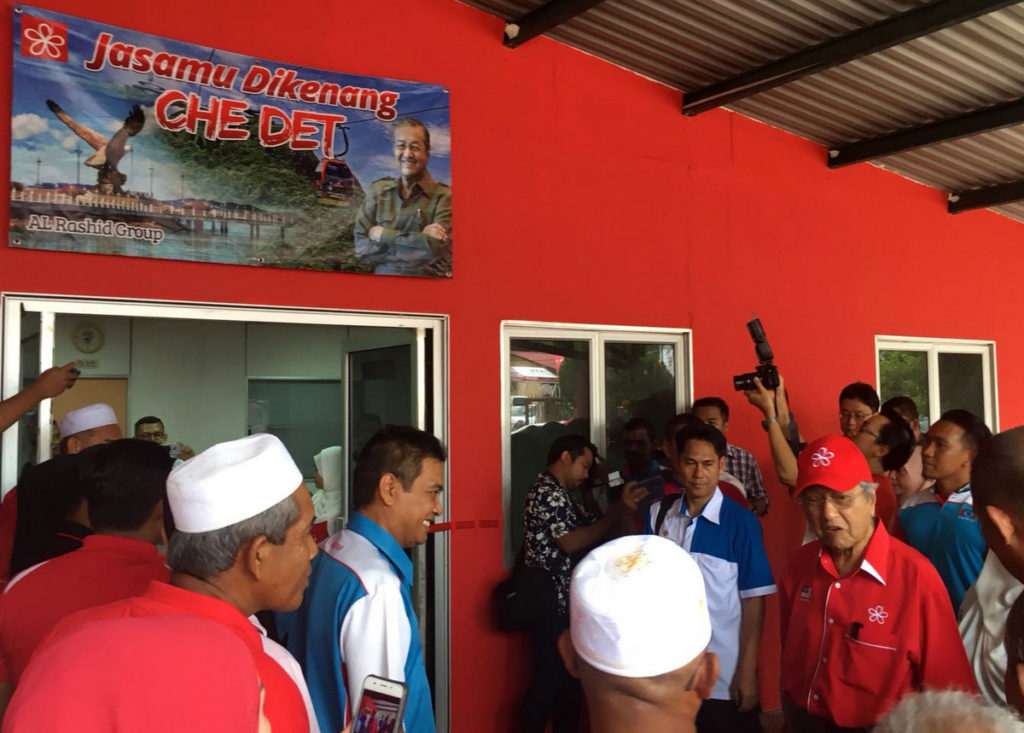
Dr Mahathir Mohamad is indeed back from the dead, and prime minister Najib Razak is spooked. Dr Mahathir is making meaningful inroads in the northern peninsula states of Perlis and Kedah, which includes Langkawi, where he’s seen as the island’s “father”. Many people I speak to recall the “boom” days which saw resorts like Kampung Tok Senik flourish as solely Mahathir-inspired; the resort’s now stale, dishevelled appearance seems a metaphor for the Malaysian state. Over on the mainland in Guar Chempedak, 3000 people watch Mahathir speak at an opposition rally, a further 1000 attend a similar event in Perlis a day later. In response, Najib has promised several grandiose government programs for the region, including five projects for Langkawi worth RM1.3 billion (A$430m). As Muhamad Sanusi, Deputy Commissioner of the Islamist party (Pas) in Kedah said, “UMNO’s biggest concern is to make sure Mahathir doesn’t win. Mahathir back in parliament would be a dangerous thing. By hook or by crook, they will try to stop him. If Mahathir stands in Kedah, UMNO Kedah will be given a special job and loads of money to try to stop him.”
Yet it would be wrong to see Dr Mahathir’s persona as the only factor in voting here. His messages, and his party, Bersatu, are predominantly an anti-Najib machine. Almost all Bersatu party members are disgruntled former UMNO [Najib’s party] cadres fed up with Najib’s rule, which they see as corrupt and self-serving. One cadre in the Bersatu Women’s Wing tells me, “UMNO people are stupid [bodoh], always blindly following Najib”.
There’s little in Dr Mahathir’s campaign speeches to suggest that if he does miraculously become prime minister again, he or any of his senior party members have a visionary plan for the country’s future. Rather, his speeches are piercing analytical take-downs of the current administration, linked to corruption, taxes, the rising cost of living, and a flailing economy. Would a Mahathir-led opposition in alliance with a freed Anwar Ibrahim bring about comprehensive changes to the system? After all, Bersatu is being described as “UMNO 2.0”. But for UMNO, an “alternative UMNO” with a more popular leader is a serious problem.
While the resurgence of the “old” Mahathir is a key factor in this election, another game changer is the emergence of the “new”: the smartphone. Cheap, Android mobile phones are ubiquitous in Malaysia. In 2016, according to Malaysia’s Multimedia Commission, 77% of Malaysians had access to the internet, and around 90% of those users were using Facebook on a smartphone. But it’s the growth in Malay semi-rural and rural areas that matters here. Prior to the last election in 2013, only around 58% of internet users were ethnic Malay. In two years, that number had grown to 68% and continues to grow. In rural Kedah, most people I talked to under the age of 40 were all using a smartphone with Facebook and WhatsApp installed. This matters because they have access to a wider array of information and disinformation (90% of respondents said they used their phone to “get information”). As one local candidate told me, “we have problems understanding the decision of first-time voters, and this is because they all have smartphones. We can’t rely on them to vote the way their parents voted or other family members vote because they are more individuals in terms of the information they receive through these devices.”
‘Aku nak Islam lama balik’: a look at one kampung in Sabah
Dina Zaman on how the religious tensions of Peninsular Malaysia are being imported to Sabah.
Their usage and impact are central to understanding Southeast Asia’s rapidly shifting information society. One newspaper has already described GE14 as the “Whatsapp election”. Earlier this month, Malaysia’s parliament passed the highly controversial Anti-Fake News Bill. Analysts watch with concern as to whether the bill will be used to negate the spread of anti-government information online, in particular with further details about the 1MDB saga.
But let’s return to Kampung Tok Senik, “where genuine Malay heritage flourishes”, because it’s the ethnic Malay vote in places like here, in semi-rural and rural areas of the peninsula, that will decide the election. The opposition wants to win 100 out of 112 seats on the peninsula—it holds out little hope of winning many seats in Sabah and Sarawak—and to do this, they need a so-called “Malay tsunami”, where an enormous swing of Malay voters, abandoning UMNO and Pas, vote for the opposition. Senior local operators and pollsters in Kedah’s UMNO-led government remain confident of keeping the state. They have campaign teams using WhatsApp and Facebook, and small groups of campaigners on the ground countering Mahathir’s messages. Pas says its loyal voters will not budge, and they claim the arrival of Bersatu is good because it reduces UMNO votes and could place Pas in a better position. Of course, everyone is talking a big game prior to the campaign.
What they all agree on however is that the arrival of new parties Bersatu and Amanah (a splintering of Pas) means ethnic Malay voters have more choice in this election. And coupled with smartphones allowing for more personal interaction with individual parties and candidates, the local candidate is crucial. As one villager in southern Kedah told me, “things are changing. My grandfather voted for Pas his whole life. My father voted for UMNO his whole life. But me? I will choose the best candidate.”
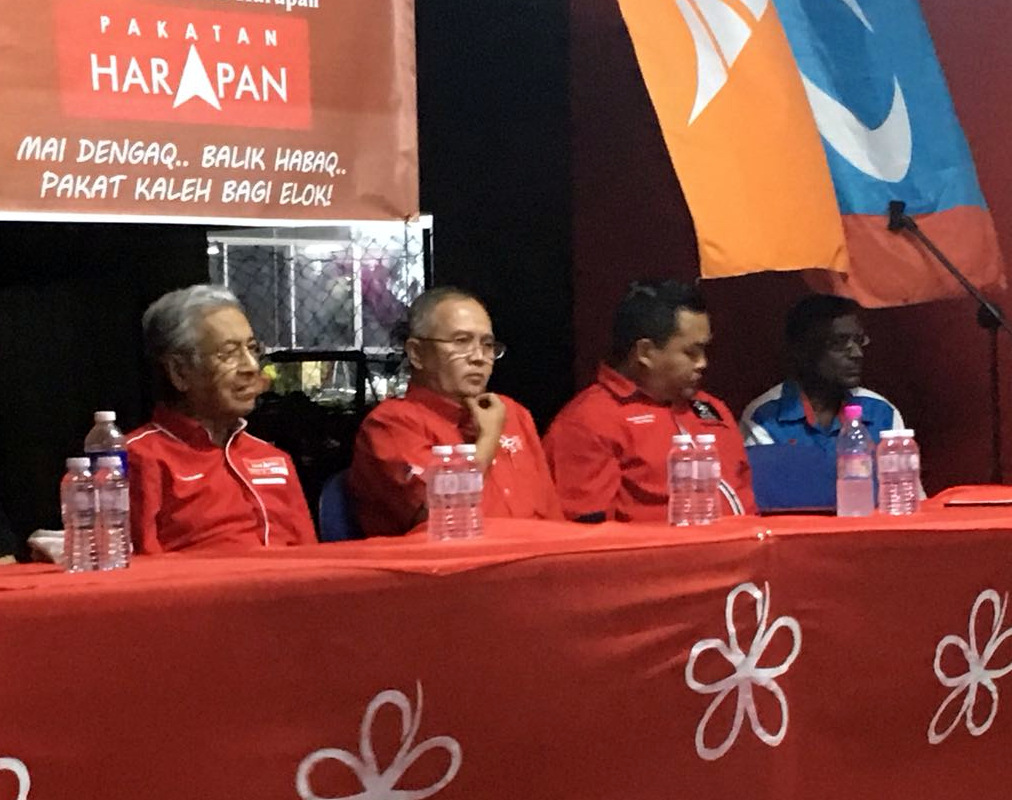
A common saying amongst pollsters when assessing winning seats here is “tengok calonlah”, meaning “wait and see who the local candidate is before assessing who will win the seat”. Of course, personal and family ties to parties, as well as effective party machinery, still matter in how people choose the “best” candidate. But this suggests an unlikely “Malay tsunami” solely to the opposition or indeed to any one party, given all parties have decent hard-working candidates, as well as complete duds. At least prior to the official campaign period, I did not see signs of an enormous swing towards the opposition. Perhaps it’s no surprise that technology allows for more individual choice of news and views, and an individual candidate’s performance trumps entrenched party loyalty.
Despite Malaysia’s entrenched authoritarian regime with a ruling party which has won every election since Merdeka in 1957, there is still much uncertainty and anxiety around the precise outcome of the election—and what kind of outcome is best for Malaysia’s future.
 Facebook
Facebook  Twitter
Twitter  Soundcloud
Soundcloud  Youtube
Youtube  Rss
Rss 